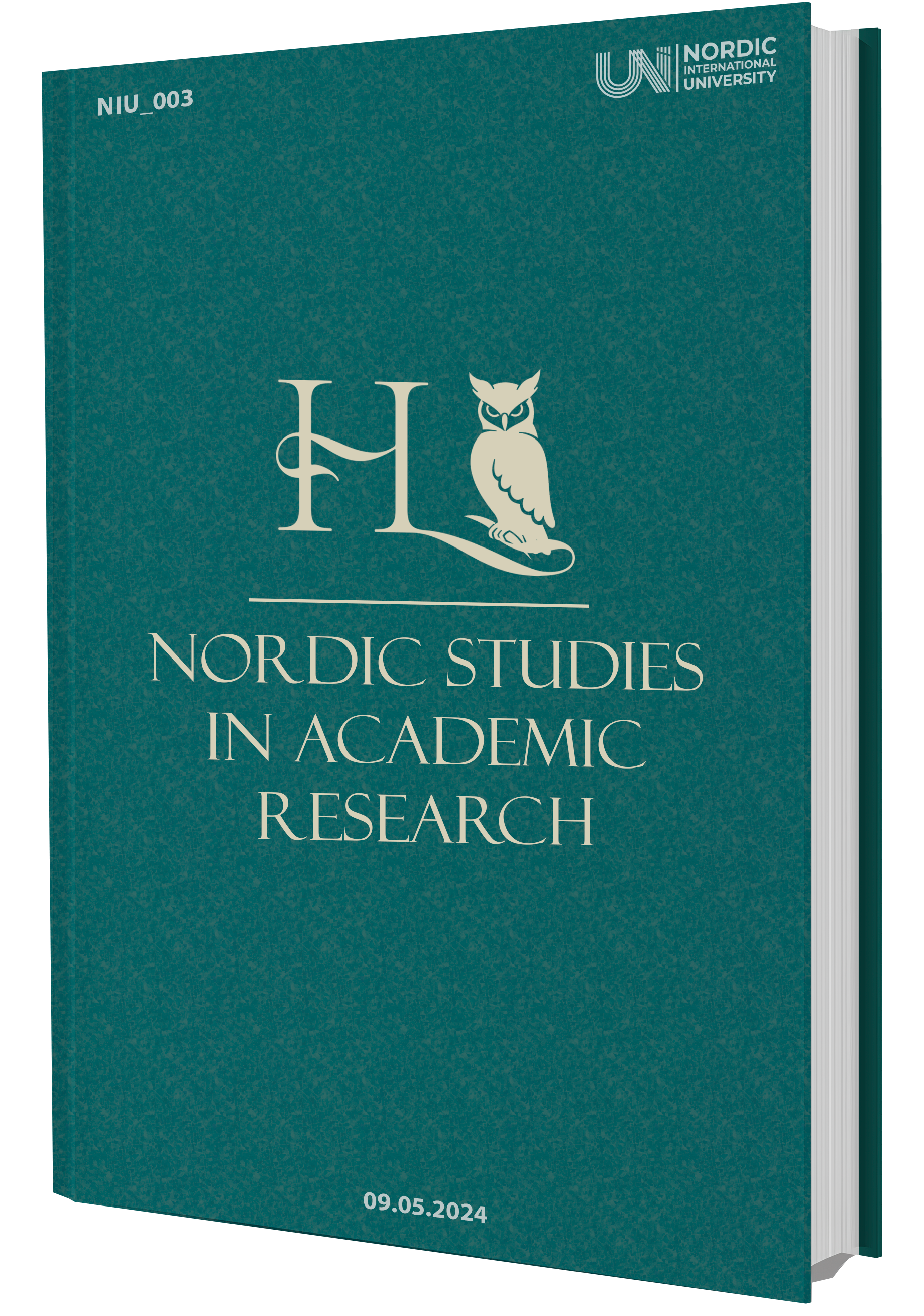Exploring the Impact of Technology on Education
Ключевые слова:
Technology has played a crucial role in transforming traditional teaching methods, enabling personalized learning experiences that cater to individual student needs and preferences.Аннотация
IntroductionThe integration of technology in education has transformed traditional learning environments, enhancing accessibility and engagement for students around the globe.This shift has not only facilitated personalized learning experiences but also equipped educators with innovative tools to foster collaboration and critical thinking among students.As educational institutions continue to embrace digital resources, the potential for improved academic outcomes and skill development becomes increasingly evident.The rise of online learning platforms, interactive software, and virtual classrooms has further expanded opportunities for students to learn at their own pace, breaking down geographical barriers that once limited access to quality education.These advancements have also prompted a reevaluation of teaching methodologies, encouraging educators to adopt more dynamic and interactive approaches that cater to diverse learning styles.This transformation in education is reshaping the role of teachers, who are now seen more as facilitators and guides rather than mere transmitters of knowledge.
Библиографические ссылки
Isakova, M. (2024). THE DIFFERENCES BETWEEN UZBEK AND FINNISH EDUCATION SYSTEMS. Nordic_Press, 3(0003).
Нарбекова, З. (2024). Педагогические технологии и методы чтения и понимания немецкого языка. In Probleme de filologie: aspecte teoretice şi practice (pp. 79-82).
Isakova, M. (2024). Improving Four Language Skills Through Emerging Technologies: A Comprehensive Analysis. Nordic_Press, 3(0003).
НАРБЕКОВА, З. (2023, October). МЕТОДИЧЕСКАЯ СИСТЕМА ФОРМИРОВАНИЯ КОМПЕТЕНТНОСТИ ПОНИМАНИЯ ПРОЧИТАННОГО У БУДУЩИХ СТУДЕНТОВ-ЭКОНОМИСТОВ ПОСРЕДСТВОМ ПРОБЛЕМНОГО ЧТЕНИЯ. In International Scientific and Current Research Conferences (pp. 536-540).
Шахакимова, Р. (2024). ОМОНИМЫ И ПАРОНИМЫ В РУССКОМ ЯЗЫКЕ. ФУНКЦИОНАЛЬНО-СТИЛИСТИЧЕСКОЕ ИСПОЛЬЗОВАНИЕ ОМОНИМИИ И ПАРОНИМИИ. International journal of scientific researchers (IJSR) INDEXING, 6(1), 7-12
Isakova, M. (2024). The Merits and Demerits of Teaching Foreign Languages Using Online Tools. Nordic_Press, 3(0003).
Karimova, M. (2019). Verbalization Of The Concept “Love” By Phrase Logical Units And Proverbs. International Journal of Bio-Science and Bio-Technology, 11(10), 98-104.
Isakova, M. A. (2025). TALABALARNING XORIJIY TILLARNI O ‘ZLASHTIRISHIDA INTERAKTIV VA INNOVATSION FAOLIYATLARDAN FOYDALANISH USULLARI. Inter education & global study, (1), 227-235.
Abror, S. (2023, April). RECENT ADVANCEMENTS IN UZBEK NLP TOOLS. In INTERNATIONAL SCIENTIFIC CONFERENCES WITH HIGHER EDUCATIONAL INSTITUTIONS (Vol. 1, No. 14.04, pp. 181-184).
Азаматова, Н. Б. (2011). CТИЛЬ ЛЕКТОРСКОЙ ДЕЯТЕЛЬНОСТИ КАК ПРОЦЕСС РАСКРЫТИЯ ИНДИВИДУАЛЬНО-ПСИХОЛОГИЧЕСКИХ ОСОБЕННОСТЕЙ ЛИЧНОСТИ ЛЕКТОРА. Вопросы гуманитарных наук, (5), 48-51.
Isakova, M. (2024). TA’LIMDA FIN TAJRIBASI VA O ‘QITUVCHILAR TAYYORLASH TIZIMI. Nordic_Press, 1(0001).
Саримсакова, Г. М. (2021). Роль современного русского языка в обогащении культуры межнационального общения. Наука и образование сегодня, (2 (61)), 54-55.
Саримсакова, Г. М. (2023). НАПРАВЛЕНИЕ СРАВНИТЕЛЬНО-СОПОСТАВИТЕЛЬНОГО ЯЗЫКОЗНАНИЯ В УЗБЕКИСТАНЕ. Вестник науки, 2(3 (60)), 205-213.
Karimova, N. S., Isakova, M. A., & Abdurazikova, D. U. (2021). EFFECTIVENESS OF CASE STUDY IN TEACHING FOREIGN LANGUAGES. Экономика и социум, (4-2 (83)), 900-902.
Riskiev, B. B. (2021). Functional and semantic properties of classifications of verbs in russian linguistics. Asian Journal of Research in Social Sciences and Humanities, 11(11), 415-418.
Naima, R. (2023). APPLICATION OF THE METHOD OF INTEGRATED LEARNING IN A NON-LANGUAGE UNIVERSITY. Gospodarka i Innowacje., 32, 143-145.
Madina Isakova, [13.02.2025 13:49]
Isakova M.A. Talabalarning xorijiy tillarni o‘zlashtirishida interaktiv va innovatsion faoliyatlardan foydalanish usullari. // Inter education & global study. 2025.
№1 B. 227–235.
Калонова, З. А. (2024, February). МЕТОДОЛОГИЧЕСКИЙ ПОДХОД К ИНТЕНСИВНОМУ ОБУЧЕНИЮ РУССКОМУ ЯЗЫКУ В РАМКАХ УЧЕБНЫХ ПРОГРАММ УЗБЕКСКИХ КЛАССОВ. In International journal of conference series on education and social sciences (Online) (Vol. 4, No. 1).
Raja, R., & Nagasubramani, P. C. (2018). Impact of modern technology in education. https://doi.org/10.21839/JAAR.2018.V3IS1.165
Roy, A. (2019). Technology in teaching and learning. International Journal for Innovation Education and Research. https://doi.org/10.31686/IJIER.VOL7.ISS4.1433
Hussain, M., Qureshi, Z. M., & Malik, S. (2024). The Impact of Educational Technologies on Modern Education: Navigating Opportunities and Challenges. Global Educational Studies Review. https://doi.org/10.31703/gesr.2024(ix-iii).03
Arvind, T. (2024). Leveraging Technology for Enhanced Connectedness and Student Engagement. Practice, Progress, and Proficiency in Sustainability. https://doi.org/10.4018/979-8-3693-7989-9.ch013
Tomar, V., & Soni, S. (2024). Impact of technology on education. International Journal of Advanced Academic Studies. https://doi.org/10.33545/27068919.2024.v6.i6b.1222
Загрузки
Опубликован
Выпуск
Раздел
Лицензия
Copyright (c) 2025 Madina Isakova

Это произведение доступно по лицензии Creative Commons «Attribution-NonCommercial» («Атрибуция — Некоммерческое использование») 4.0 Всемирная.
Условия лицензии
Эта работа доступна под лицензией Creative Commons Attribution-NonCommercial 4.0 International License. Чтобы просмотреть копию этой лицензии, посетите http://creativecommons.org/licenses/by-nc/4.0/ или отправьте письмо по адресу Creative Commons, PO Box 1866, Mountain View, CA 94042, США.
По этой лицензии вы можете:
Поделиться — копируйте и распространяйте материал на любом носителе и в любом формате.
Адаптируйте — делайте ремиксы, трансформируйте и дорабатывайте материал.
Лицензиар не может отозвать эти свободы, если вы соблюдаете условия лицензии. На следующих условиях:
Атрибуция. Вы должны указать соответствующую ссылку, предоставить ссылку на лицензию и указать, были ли внесены изменения. Вы можете сделать это любым разумным способом, но не таким образом, который бы предполагал, что лицензиар одобряет вас или ваше использование.
Некоммерческое использование — вы не имеете права использовать материал в коммерческих целях.
Никаких дополнительных ограничений. Вы не имеете права применять юридические условия или технологические меры, которые юридически запрещают другим делать все, что разрешено лицензией.





